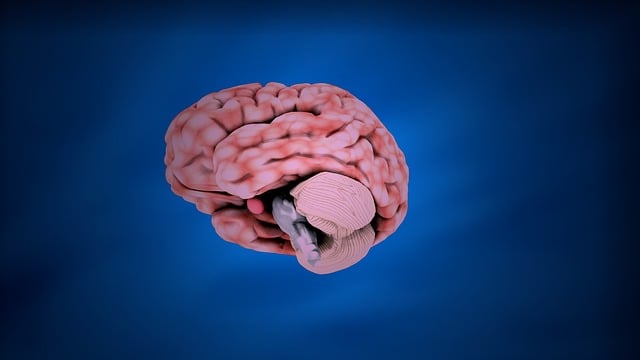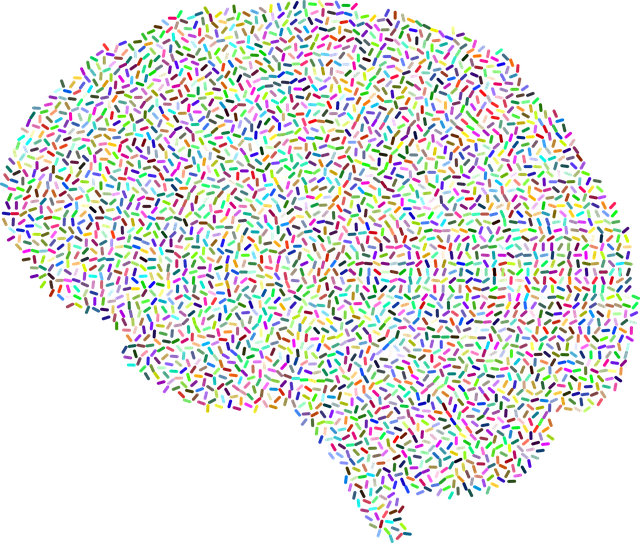In Colorado Springs, cultural sensitivity is a cornerstone of effective mental healthcare, especially for gender identity therapy. Therapists create safe spaces, address biases and power dynamics, and tailor practices to diverse clients' needs. This approach combines evidence-based methods with respect for cultural contexts, improving outcomes and enhancing trust. By overcoming challenges like historical trauma and language barriers, Colorado Springs Gender Identity Therapy offers holistic support, fostering self-awareness, acceptance, and positive mental wellness tailored to each individual's unique identity.
Mental healthcare practices are evolving to embrace cultural sensitivity, ensuring equitable access to care. This is especially critical in addressing the unique needs of diverse populations, such as those with gender identity issues. In this article, we explore the concept of cultural sensitivity in mental healthcare, highlighting its significance through a case study of Colorado Springs Gender Identity Therapy. We also delve into challenges, like language barriers and stereotyping, and present strategies to enhance cultural competence for more inclusive care.
- Understanding Cultural Sensitivity in Mental Healthcare
- The Importance of Cultural Competence in Therapy
- Colorado Springs Gender Identity Therapy: A Specialised Approach
- Challenges and Barriers to Providing Culturally Sensitive Care
- Strategies for Enhancing Cultural Sensitivity in Practice
Understanding Cultural Sensitivity in Mental Healthcare

Cultural sensitivity in mental healthcare is a critical aspect that goes beyond treating symptoms and delves into understanding and respecting the unique cultural backgrounds, beliefs, and values of each client. This approach recognizes that mental health experiences can vary significantly across different cultures and communities, including those seeking gender identity therapy in Colorado Springs. By incorporating cultural awareness, therapists create a safe and supportive environment, fostering open communication and enhancing trust.
Incorporating cultural sensitivity requires healthcare providers to be adept at navigating complex issues such as unconscious biases, power dynamics, and systemic barriers that can impact access to care. It involves learning about diverse cultural practices related to mental wellness and stress management, and incorporating these insights into treatment plans. Burnout prevention strategies for healthcare providers often emphasize the importance of cultural sensitivity, ensuring professionals remain empathetic and engaged while delivering quality care tailored to each individual’s needs, regardless of their background or identity.
The Importance of Cultural Competence in Therapy

In the diverse communities of Colorado Springs, cultural sensitivity is not just a preference; it’s an essential component of effective mental healthcare. Therapists who understand and appreciate the nuanced differences in beliefs, values, and communication styles can create safer, more inclusive spaces for clients from various ethnic, racial, religious, and gender backgrounds, such as those seeking Colorado Springs Gender Identity Therapy. This cultural competence is crucial because it fosters trust and encourages open dialogue, enabling clients to explore their mental health issues honestly.
When therapists incorporate mental wellness journaling exercises, inner strength development, and compassion cultivation practices tailored to a client’s cultural context, they offer guidance that resonates deeply. Such personalized care not only enhances the therapeutic process but also promotes better outcomes. By recognizing and respecting cultural differences, therapists can provide more meaningful support, ultimately enriching both the practice of therapy and the lives of those seeking help in Colorado Springs.
Colorado Springs Gender Identity Therapy: A Specialised Approach

In Colorado Springs, a specialized approach to mental healthcare has emerged, focusing on Gender Identity Therapy. This unique service recognizes the diverse needs and challenges faced by individuals navigating their gender identity. The therapy provides a safe and inclusive space for people from all walks of life to explore their feelings and express themselves authentically. By combining evidence-based practices with a deep understanding of cultural sensitivity, therapists in Colorado Springs offer a holistic support system.
This specialized therapy goes beyond traditional mental health care by integrating techniques such as Mindfulness Meditation and Emotional Intelligence exercises. These tools enhance self-awareness, helping clients to better understand their experiences and develop coping mechanisms tailored to their specific needs. Through this approach, individuals can achieve a deeper sense of well-being and acceptance, fostering an environment where gender identity is celebrated rather than stigmatized.
Challenges and Barriers to Providing Culturally Sensitive Care

Providing culturally sensitive care in mental healthcare can be complex, especially in diverse communities like Colorado Springs. Challenges arise from a multitude of factors, including differing cultural norms, values, and beliefs about mental health and wellness. For instance, individuals from underrepresented or minority groups may face barriers to accessing quality care due to historical trauma, language differences, or lack of culturally relevant services. This can lead to disparities in treatment outcomes and patient satisfaction.
Moreover, healthcare providers themselves must navigate their own biases and assumptions, which can impact the care they offer. Effective risk management planning for mental health professionals involves recognizing these barriers and implementing strategies to overcome them. Promoting positive thinking and encouraging open communication can foster a supportive environment. Additionally, burnout prevention strategies for healthcare providers are crucial in ensuring that practitioners remain empathetic and culturally competent over time.
Strategies for Enhancing Cultural Sensitivity in Practice

In enhancing cultural sensitivity in mental healthcare practice, especially within the context of Colorado Springs Gender Identity Therapy, several effective strategies can be employed. One key approach is to foster self-awareness exercises that encourage professionals to examine their own biases and assumptions. This introspective process allows therapists to recognize how personal experiences might influence interactions with diverse clients. By cultivating emotional intelligence, healthcare providers can better understand and empathize with the unique emotional landscapes of individuals from various cultural backgrounds, thereby creating a more inclusive therapeutic environment.
Additionally, integrating mental wellness discussions tailored to cultural contexts can significantly improve patient care. This involves learning about the specific mental health challenges and healing practices within different communities. By adapting therapeutic techniques to reflect these cultural nuances, therapists in Colorado Springs can offer more personalized and effective Gender Identity Therapy. Such an approach not only enhances treatment outcomes but also fosters a deeper sense of trust and respect between therapist and client.
Cultural sensitivity in mental healthcare is not just a preference, but an essential component of effective therapy. As demonstrated by specialized approaches like Colorado Springs Gender Identity Therapy, understanding and respecting diverse cultural backgrounds can significantly improve patient outcomes. By navigating challenges such as language barriers and unconscious biases, healthcare professionals can foster inclusive environments that enhance the well-being of all individuals. Implementing strategies to enhance cultural sensitivity ensures that mental health services are accessible, effective, and tailored to the unique needs of every patient, creating a more equitable and supportive care system.













